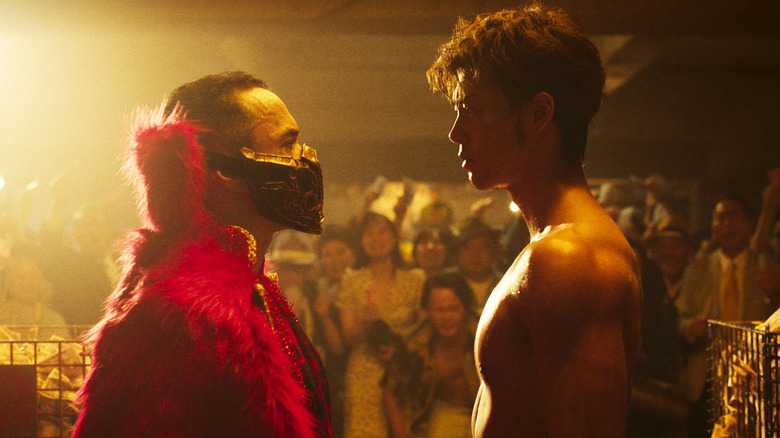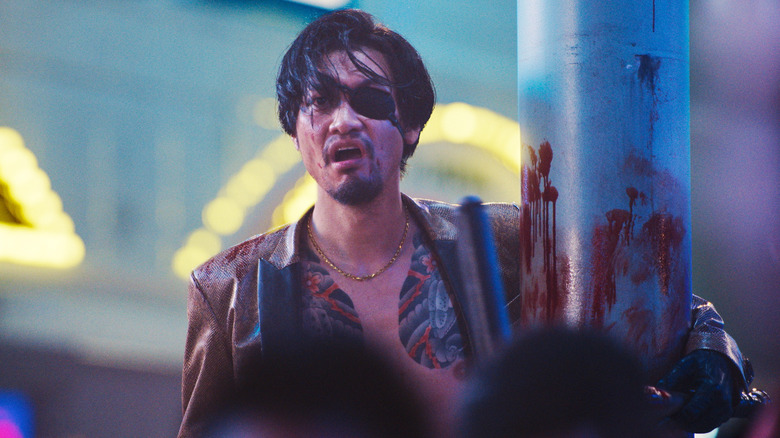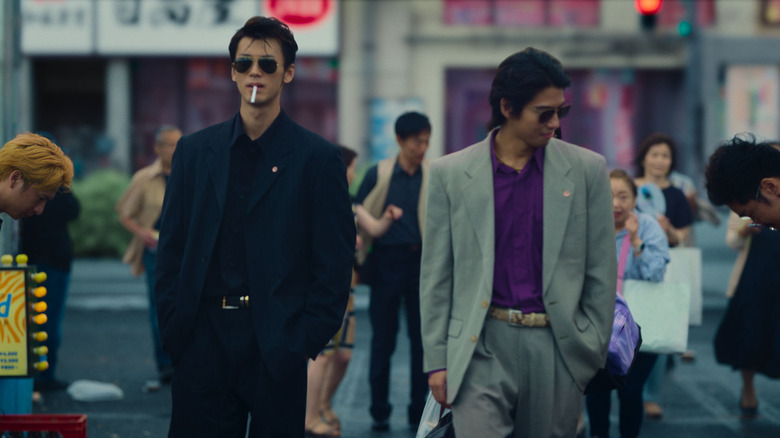Like A Dragon: Yakuza Review - A Vapid And Flavorless Live-Action Adaptation
- A dedicated cast
- Tedious plot
- Lack of much-needed action
- Shallow characters
It's difficult to imagine who Sean Crouch and Yugo Nakamura — the creators of Amazon Prime's latest crime action series "Like a Dragon: Yakuza" — had in mind as their target audience when they began making a six-episode live-action adaptation of the famous Sega video game series, "Yakuza." Although I haven't played any game in the franchise, I'm familiar with their concept and appeal. They're essentially role-playing, beat 'em up, open-world games set in a Japanese underworld filled with vengeful crime families in constant conflict with one another to rule Kamurocho (a fictional version of Tokyo's Kabukicho district). The games effectively mix elements of action, a gangster narrative, and an admittedly over-the-top humor that made them a commercial success.
Unfortunately, the adaptation — based on the original 2005 game and its 2016 remake — barely incorporates any of that. "Like a Dragon: Yakuza" is a slog of dull and mostly unexciting personal drama that lacks many of the enticing qualities the games carried. Thus, it's kind of a mystery who it is really for.
Kazuma Kiryu (Ryoma Takeuchi) always wanted to be a dragon: a celebrated warrior and yakuza of the Tojo Clan. In 1995, he concocts a plan with his three teenage friends to rob an arcade that belongs to the organization. Though their heist goes successfully, soon after, the clan's chairman Daigo Sasaki (Koichi Sato) finds out the thieves' identities and sends his men to collect them and the money they stole. Instead of killing the four, however, Sasaki opts to make use of them in other ways to repair the damage they caused him. But then Kazuma claims he planned the robbery only to get the attention of Sasaki in the hope of becoming a member of his gang. For better or worse, he gets what he wants.
We follow Kazuma and his friends on two separate timelines. One begins with the theft in 1995 while the other takes us to 2005 when Kazuma is released from prison after doing a 10-year sentence. Though he's no longer part of the crime organization and wants nothing to do with Kamurocho anymore, he decides to return to the district and its new kingpins because one of his childhood friends needs his help. But he'll also have to face other ghosts from his past who rose to power while he's been incarcerated.
The show has a lack of effective drama and action
"Like a Dragon: Yakuza" has a sprawling plot with constantly moving parts, power dynamics, and a myriad of characters. But none of them are particularly engaging or intriguing. The initial suspense the pilot creates is slowly extinguished by a grim, uneventful, and sometimes hard-to-follow drama (due to the many new faces and various names) that entices little emotional investment from the viewer. But what's truly inexplicable in "Like a Dragon: Yakuza" is the lack of action scenes. Why anyone would adapt a game that prides itself on its fighting mechanics and hand-to-hand combat if they had virtually no intention to feature those is an utter mystery to me.
I want to be fair, though: there are some fight sequences. But they are tedious, riskless, unimaginative, and usually end so quickly you might miss them if you blink. Which is a massive let-down from a country like Japan, whose action cinema (and television) generally delivers some of the most brutal, adrenaline-fueled, and creative fight choreographies that have become their trademark over the years. And it's not like the series doesn't have space for them. There are ample instances where "Like a Dragon: Yakuza" seems to build up to a brawl just to suddenly neutralize the tension with some lame excuse and abandon the situation altogether. It feels pretty odd not to capitalize on action and violence in a story that revolves around gangs, crime, and revenge.
Good but entirely wasted performances
What the show deserves credit for, however, is its stylish wardrobe (lifted from the games) and dedicated cast. Although these qualities can't save "Like a Dragon: Yakuza" from total disinterest, they at least make it look professional and sumptuous for the most part. I guess that's something when a show has little to offer in the first place. It's just a shame that performances like Ryoma Takeuchi's brooding protagonist Kazuma or Kento Kaku's transformation from a desperate young boy into an ice-cold and calculating yakuza feel totally wasted on underwhelming and dry material that doesn't give the actors a real chance to really show off their talents. They bring some cool factor with their swag, immaculate suits, and confident demeanor, but can't rise above the shallowness of how their characters are written.
Overall, there's a reason this narrative was originally told through a different medium in an open-world setting. It's quite simple: if you weren't immersed in the main quest and its missions, you had the option to do other, more fun activities the game offered. When watching the adaptation that's monotonous, dead-serious, and entirely devoid of humor, we, as viewers, don't have that choice — only the option of turning it off altogether.
Initially, "Like a Dragon: Yakuza" was envisioned as a movie instead of a TV series, which would've made more sense. The story just doesn't have enough meat on its bones to fill six 40 to 50-minute-long episodes and keep the viewer's attention. But even as a film, it would've required a drastically different approach — one with a lot more emphasis on action and raw violence that could've highlighted the vicious, seedy, dog-eat-dog world of Kamurocho. Then it maybe wouldn't have turned out to be the underwhelming, bland, and lifeless disappointment that it sadly is.
"Like a Dragon: Yakuza" premieres on Amazon Prime Video on October 24.


